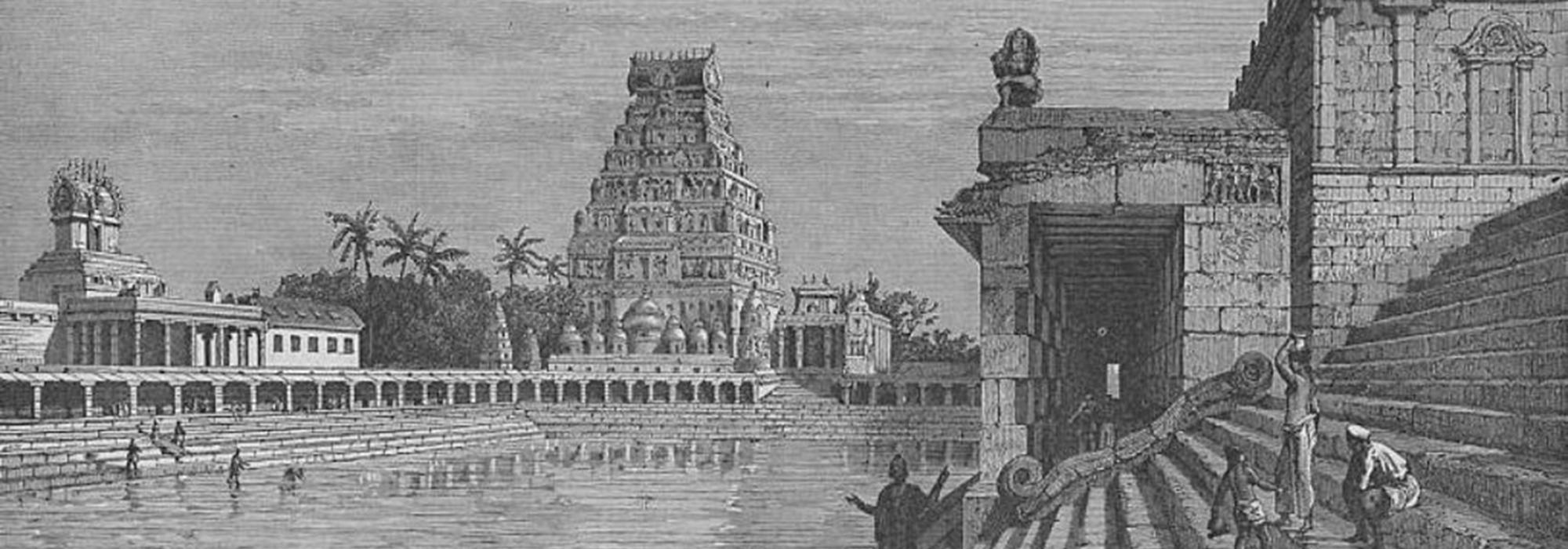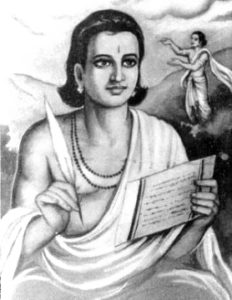इह निवसति मेरुः शेखरः क्ष्माधराणा-
मिह विनिहितभाराः सागराः सप्तचान्ये ।
इदमहिपतिभोगस्तम्भविभ्राजमानं
धरणितलमिहैव स्थानमस्मद्विधानाम् ॥
iha nivasati meruh shekharah kshmadharanam
iha vinihatabharah sagarah saptachanye |
idamahipatibhogastambhavibhrajamanam
dharanitalamihaiva sthanamasmadvidhanam ||
There is perhaps no rasika in India who is unaware of Kalidasa. Many scholars opine that he was under the patronage of the Gupta ruler Chandragupta Vikramaditya. Kalidasa was a multi-faceted personality. His superlative creative prowess earned him the title ‘Kavikulaguru’ – the foremost among poets. He was a man who knew the ways of the world. A prodigious scholar in various shastras, he was endowed with a ready wit and an unfailing intellect. Interesting to our present story, however, is the fact that he was no stranger to the nuances of politics.
The land of our story, Kuntaladesha, was ruled by the mighty Kadambas, with Bhagiratha as the emperor. Kalidasa once visited this Kannada province as an envoy of Chandragupta Vikramaditya.
Bhagiratha was known for his insolence. Mindless of the poetic genius of Kalidasa, he had planned to insult the envoy by not offering him a seat. Accordingly, no chairs were in sight when Kalidasa entered the court.
'Sarasvatiputra' (the son of Saraswati, the Goddess of Learning), Kalidasa was not oblivious to Bhagiratha’s mischief. He at once grasped the king’s intentions and composed this verse to mock him. Unabashed at the king’s haughtiness, he recited the verse and sat on the ground – bold and dignified:
Here resides Meru, the mightiest of mountains
Here flow the seven seas, with their burdens relieved
This resplendent earth, with Adishesha's hood as its base
is indeed the befitting seat for the likes of us
Upon hearing this, Bhagiratha was overcome with shame. He apologized for his mistake and honored Kalidasa. He also became friends with Chandragupta thereafter.
We find many versions of this incident in the writings of Kshemendra, Bhoja, and Rajashekhara. They continue to intrigue and delight Kalidasa’s readers even to this day.
Translated from Kannada by Shashi Kiran
(The original article is from the anthology Kavitegondu Kathe.)
















































